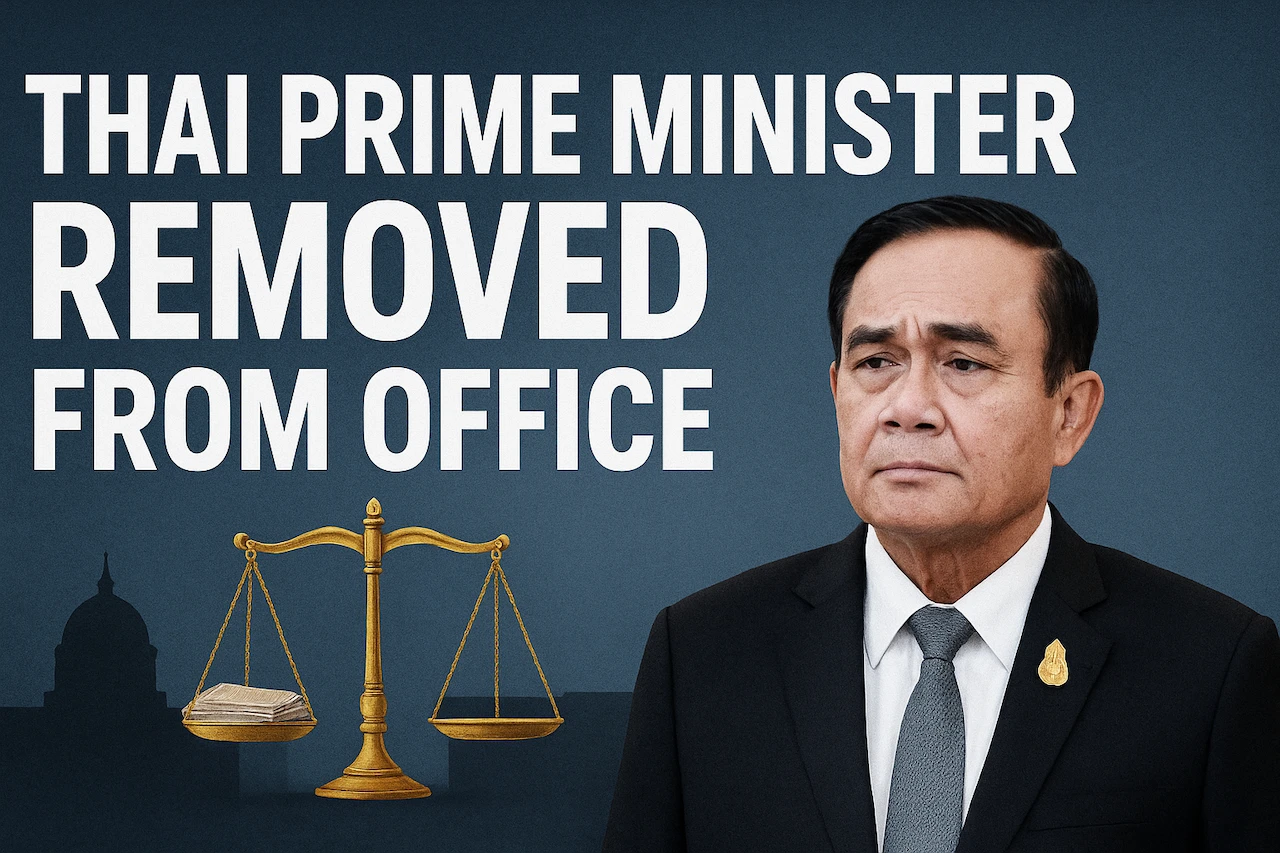GloNews10

In a shocking political twist, Thailand’s Prime Minister has been removed from office, sparking widespread debate and raising concerns about the future of democracy in the country. This decision by the Constitutional Court is a major turning point for Thailand’s political landscape, which has long been marred by instability and frequent leadership changes.
The removal of the Prime Minister not only impacts Thailand’s internal politics but also has significant implications for its economy, foreign relations, and investment climate. Let’s break down what happened, why it matters, and what could happen next.
The Prime Minister was dismissed following a landmark Constitutional Court ruling, which found that the leader violated the country’s constitution. The case primarily revolved around:
Thailand’s constitution imposes strict term limits and ethical guidelines for public office holders. According to the court’s judgment, the Prime Minister breached these provisions, leading to immediate removal.
This is not the first time Thailand has faced such political turmoil. Since 1932, the country has experienced over a dozen military coups and multiple leadership changes. This recurring instability reflects:
Such frequent disruptions have weakened public trust in governance and created uncertainty for both citizens and investors. BBC News – Thai PM Ousted
The political crisis is already sending shockwaves through Thailand’s economy. Here’s how it could play out:
Analysts predict that GDP growth for 2025 could be revised downward if the political turmoil persists.
The immediate question is: Who will lead Thailand now?
The Deputy Prime Minister is expected to assume the role on an interim basis. Meanwhile, the government must appoint a new Prime Minister through parliamentary approval. However, if political factions fail to reach consensus, Thailand could face snap elections.
The removal has drawn attention from international observers and foreign governments, many of whom have urged Thailand to maintain democratic principles and constitutional integrity.